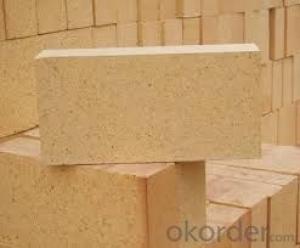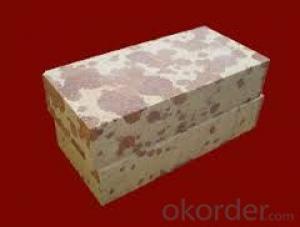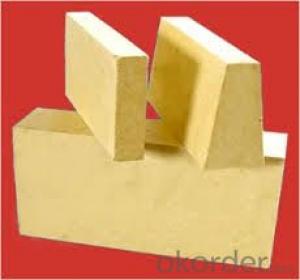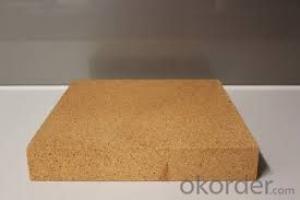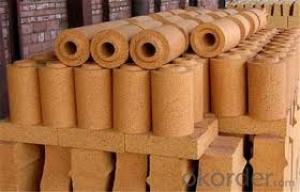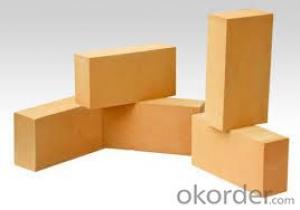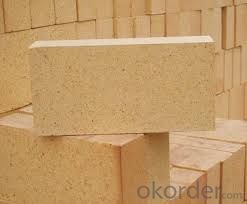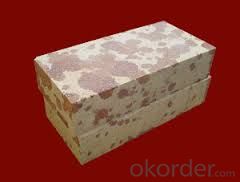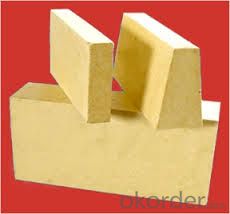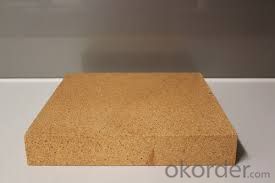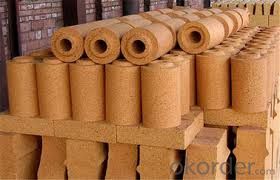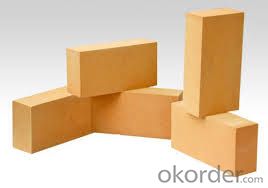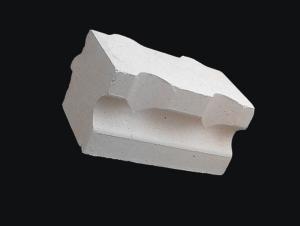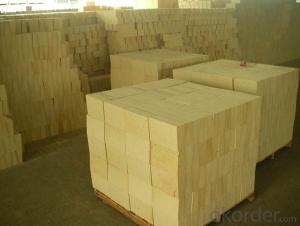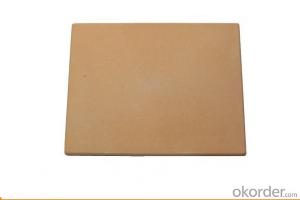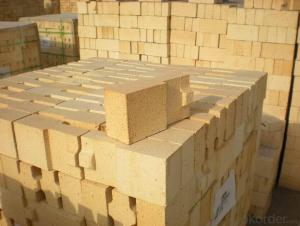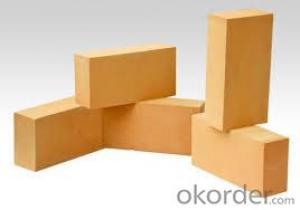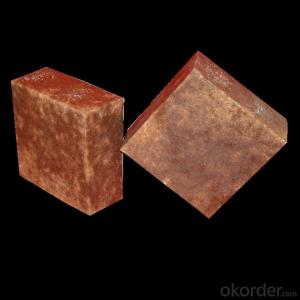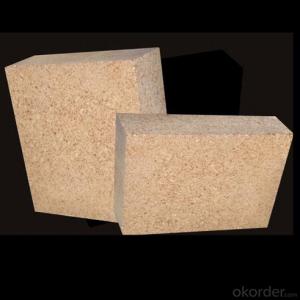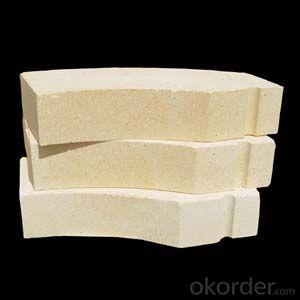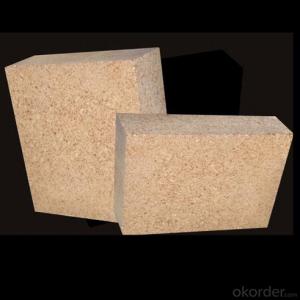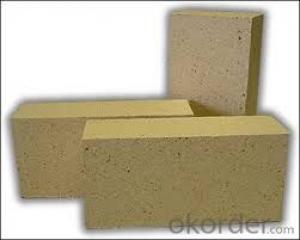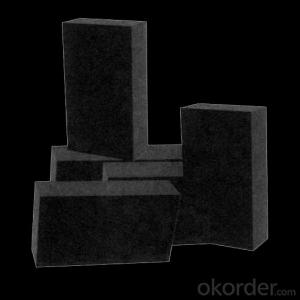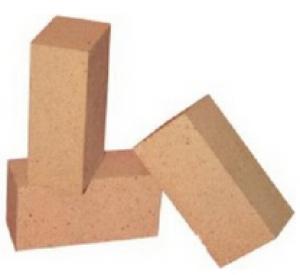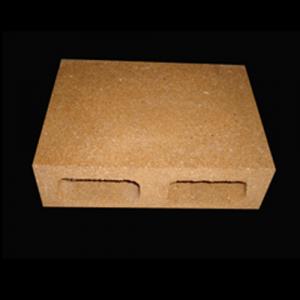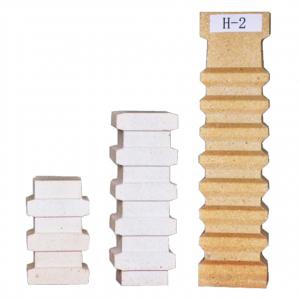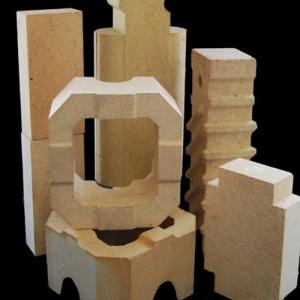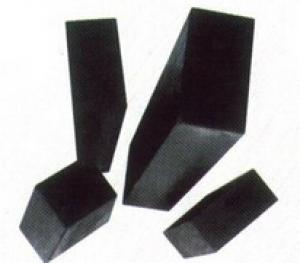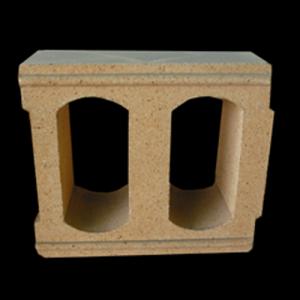High Alumina Mullite Brick for Petrochemical Industry
- Loading Port:
- Qingdao
- Payment Terms:
- TT OR LC
- Min Order Qty:
- 1 pallet
- Supply Capability:
- 5000 pallet/month
OKorder Service Pledge
OKorder Financial Service
You Might Also Like
Brief discription for Mullite Brick for Petrochemical Industry
CMAX Mullite Brick for Petrochemical Industry are classified according to alumina content ranging from 48% to 90%.
CMAX Mullite Brick for Petrochemical Industry are commonly used in blast furnace, hot blast furnace, the roof of electric furnace, teeming ladle, rotary kiln,regenerator, etc.
Brief features for Mullite Brick for Petrochemical Industry
◆Low thermal conductivity
◆Excellent acid and base slagging resistance
◆High refractoriness
◆Excellent thermal shock resistance
◆Excellent mechanical strength
◆Good spalling resistance and wear resistance.
◆Good corrosion resistance.
◆High-temperature creep rate is quite low.
◆Good volume stability at high temperature.
◆Low bulk density, low thermal conductivity, good thermal insulation performance.
Technical data for Mullite Brick for Mullite Brick for Petrochemical Industry
ITEM | UAL48 | UAL55 | UAL65 | UAL75 | UAL80 | UAL85 | ALP80 |
Refractoriness, ℃ | 1750 | 1770 | 1790 | 1790 | 1810 | 1810 | 1810 |
Apparent Porosity,% | 22 | 22 | 23 | 23 | 20 | 20 | 18 |
C.C.S, Mpa | 39 | 44 | 49 | 53 | 55 | 60 | 100 |
Refractories Under Load (0.2Mpa),℃ | 1420 | 1470 | 1500 | 1520 | 1500 | 1520 | 1550 |
Reheating Linear Change,% | 1450℃x2h 0.1~-0.4 | 1500℃x2h 0.1~-0.4 | 1500℃x2h 0.1~-0.4 | 1500℃x2h 0.1~-0.4 | 1550℃x2h -0.5~+0.5 | 1550℃x2h -0.5~+0.5 | 1550℃x2h -0.5~+0.5 |
Al2O3 Content , % | 48 | 55 | 65 | 75 | 80 | 85 | 82 |
FAQ
Q1:Are you a manufacture or trader?
A:Factory+trade(mainly factories,at the same time,we operates other related products).
Q2:Can we visit your factory?
A:Sure,welcome at any time,seeing is believing.
Q3:What's the MOQ of trial order?
A:No limit,We can offer the best suggestions and solutions according to your condition.
Q4:Which payment terms can you accept?
A:T/T,L/C are available for us.
Q5:After an order is confirmed,when to deliver?
A:15-25days after deposit.
- Q: What is the difference between corundum and high alumina??
- The main components of high alumina brick are high alumina bauxite, mullite and partial corundum sand.
- Q: What is the price of the latest thermal insulation material?
- Also through online pre understand the products and prices, and now have large-scale manufacturers are generally opened on the cable business. Goods than three, manufacturers on-site inspection, confirm the quality of goods after considering cooperation.
- Q: Density of high alumina bricks
- Alumina content of 48% or more, mainly from mullite and glass phase or corundum composition of lightweight refractory. The volume density is 0.4 ~ 1.35g/cm3. The porosity is 66% ~ 73%, and the compressive strength is 1 ~ 8MPa. Better thermal shock resistance.
- Q: What is the difference between T3 refractory bricks and high alumina refractory bricks?
- The T3 in T3 refractory bricks refers to the model indicating that the refractory brick model is T-3, and that the corresponding T-3 model is 230*114*65 (mm)
- Q: Which is better, the soft core or the hard core?
- When the current through the wire, it will produce a magnetic field in the vertical plane space of the wire, if there is a current two wire close by in the same direction, because they produce a magnetic field in the direction is opposite, it will produce a repulsive force is due to the magnetic field force. They will mutually inhibit current intensity of the other party, caused by the reduction of current in the wire, this inhibition of each current intensity, we called wire inductance. When the AC current line frequency is high, the inductance is stronger.
- Q: What are ordinary bricks, refractory bricks, hollow bricks?
- Light yellow or brownish. The utility model is mainly used for laying smelting furnaces, and can withstand high temperature between 1580 DEG C and 1770 DEG C. Also called brick. Refractory material of a certain shape and size. According to the preparation process can be divided into bricks, brick, electric melting brick (Rong Zhuzhuan), the refractory insulating bricks; according to the shape and size can be divided into standard brick, brick, brick and other specific type. It can be used as high temperature building materials and structural materials for construction kilns and various thermal equipments, and can undergo various physical, chemical and mechanical changes at high temperature. For example, refractory clay brick, high alumina brick, brick, brick etc..
- Q: The difference between ordinary and diatomite brick refractory brick
- Refractory brick belongs to a large class, according to different materials used are divided into: high alumina brick, dolomite brick, magnesia chrome brick, magnesia spinel brick, phosphate brick, carborundum brick, brick, mullite bricks etc..
- Q: The difference between light high alumina brick and heavy aluminum brick
- Lightweight high alumina brick, also called high alumina insulation brick. Alumina content of 48% or more, mainly from mullite and glass phase or corundum composition of lightweight refractory. Volume density 0.4 - 1.35g/cm3. Porosity 66% - 73%, compressive strength 1 - 8MPa. Better thermal shock resistance. Usually, a high alumina clinker is added with a small amount of clay. After grinding, it is poured and shaped in the form of slurry by gas generation or foam method, and it is fired at 1300 - 1500 DEG C. Sometimes industrial alumina can be used instead of some bauxite clinker. Used for lining and insulation of masonry kilns, as well as for areas where there is no strong, high temperature molten material erosion and erosion. When contacting the flame directly, the surface contact temperature shall not be higher than 1350 degrees centigrade.
- Q: What is the difference between high alumina brick and clay brick?
- There must be a difference. They vary in color from the amount of aluminum, the weight, the temperature, and the color. For example: 75 high aluminum and 43 clay bricks, 75 single weight 4.5kg or more. 43 3.65kg or so, the use of temperature 75, high aluminum in about 1520, 43 of brick 1430 or so, the color of 75 pan white, 43 of the Loess color. In short, the difference is great.
- Q: What are the lining structures of lime rotary kilns and what are the requirements for refractories?
- The physical and chemical properties of refractory materials used in rotary kiln are as follows: physical and chemical properties of refractory materials used in rotary kilnMaterial name: high temperature compressive strength (MPa), softening temperature (DEG C), thermal shock resistance (1100 DEG C, cold water), sub volume density (g/cm3)Magnesia spinel brick is greater than or equal to 50 is greater than or equal to 1700 = 12 = 2.95High alumina brick is greater than or equal to 75 = 1520 = 8 = 2.57High aluminum bricks more than 50 = 1700 = 12 = 1The clay brick is greater than or equal to 30 = 1400 = 12 = 2.30
Send your message to us
High Alumina Mullite Brick for Petrochemical Industry
- Loading Port:
- Qingdao
- Payment Terms:
- TT OR LC
- Min Order Qty:
- 1 pallet
- Supply Capability:
- 5000 pallet/month
OKorder Service Pledge
OKorder Financial Service
Similar products
Hot products
Hot Searches
Related keywords
